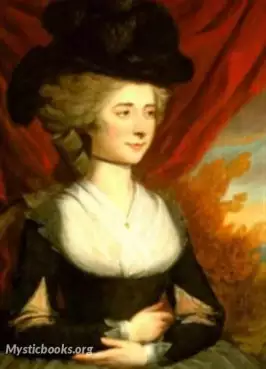
The Wanderer
by Fanny Burney
'The Wanderer ' Summary
The Wanderer opens with a group of people fleeing the Terror. Among them is the protagonist, who refuses to identify herself. No one can place her socially—even her nationality and race are in doubt. As Burney scholar Margaret Doody explains, "the heroine thus arrives [in England] as a nameless Everywoman: both black and white, both Eastern and Western, both high and low, both English and French." She asks for help from the group, but because she knows no one, she is refused.
The protagonist, later identified as Juliet Granville, tries to become self-sufficient, but her story reveals the “difficulties” of a woman in her friendless situation. Women take advantage of her economically and men importune her. She is “a woman totally dispossessed by political events”. Miss Arbe, for example, takes control of Juliet's life and her money (although inexpertly); she also attempts to organise a ladies committee, becoming "a comic spectacle of political life". Specifically, Burney compares Miss Arbe to Robespierre: as Doody explains, "the arrangements of both become swallowed in egotism, are highly disorganized if impetuously directed, and are bound to end in failure". Throughout The Wanderer, Burney comments on the tyrannical hold that the rich have over the poor in England, showing how the wealthy will accept music lessons from Juliet but refuse to pay for them, placing her in a desperate situation. She also charts the downward spiral of Juliet from gentility to working woman; she begins as a musician and slips into the less-reputable positions of milliner and seamstress. In her cross-class analysis of the problems of women, Burney was probably influenced by Mary Wollstonecraft's Maria: or, The Wrongs of Woman (1798). However, according to Doody, "Burney is the first novelist seriously to express sympathy for the working women in their normal conditions of work—and to see how the system of employment, not merely individual bad employers, creates conditions of impossible monotony."
Book Details
Language
EnglishOriginal Language
EnglishPublished In
1814Genre/Category
Tags/Keywords
Authors

Fanny Burney
England
Frances Burney also known as Fanny Burney and later Madame d'Arblay, was an English satirical novelist, diarist and playwright. Born in Lynn Regis, now King's Lynn, England, on 13 June 1752, to the mu...
Books by Fanny BurneyDownload eBooks
Listen/Download Audiobook
- Select Speed
Related books

Green Mansions: A Romance of the Tropical Forest by William Henry Hudson
"Green Mansions: A Romance of the Tropical Forest" is a narration of his life story by Abel, a Venezuelan, to a comrade. Once a wealthy young man, he...

In the Bishop's Carriage by Miriam Michelson
In the Bishop's Carriage is a gripping tale of a young woman's journey from the depths of despair to a life of unexpected adventure. Nancy 'Nance' Old...

The History of the Caliph Vathek by William Beckford
This is one of the earliest Gothic novels. The Caliph Vathek is one of the wealthiest and most powerful men who ever lived. But this is not enough for...

Pride of Jennico by Egerton Castle
Set in a dark and stormy castle, "Pride of Jennico" is a classic Gothic romance novel that follows the story of a second son who inherits an unexpecte...

Tschun by Elisabeth von Heyking
The novel follows Tschun, a young Chinese boy in Peking, who is drawn to the colonial embassies and secures a position as a boy, despite his family's...

Ruth Fielding of the Red Mill by Alice B. Emerson
Ruth Fielding, a spirited and resourceful teenager, finds herself orphaned and sent to live with her estranged Uncle Jabez at the Red Mill in Cheslow,...

A Double Barreled Detective Story by Mark Twain
A Double Barreled Detective Story is a short story/novelette by Mark Twain (Samuel Clemens), in which Sherlock Holmes finds himself in the American we...

La gota de sangre by Emilia Pardo Bazán
Descubre el misterio oculto detrás de "La gota de sangre" de Emilia Pardo Bazán, una novela cautivadora que te sumerge en un mundo de secretos y revel...

Alias Miss Sherlock by Arthur Lewis Tubbs
In the heart of a quaint farming community, a web of deceit and suspicion is woven when Dick Brewster finds himself entangled in a murder investigatio...

Tom of the Raiders by William Henry Bishop
Tom of the Raiders follows the journey of a young man named Tom who enlists in the Union Army during the American Civil War. He becomes involved in th...
Reviews for The Wanderer
No reviews posted or approved, yet...